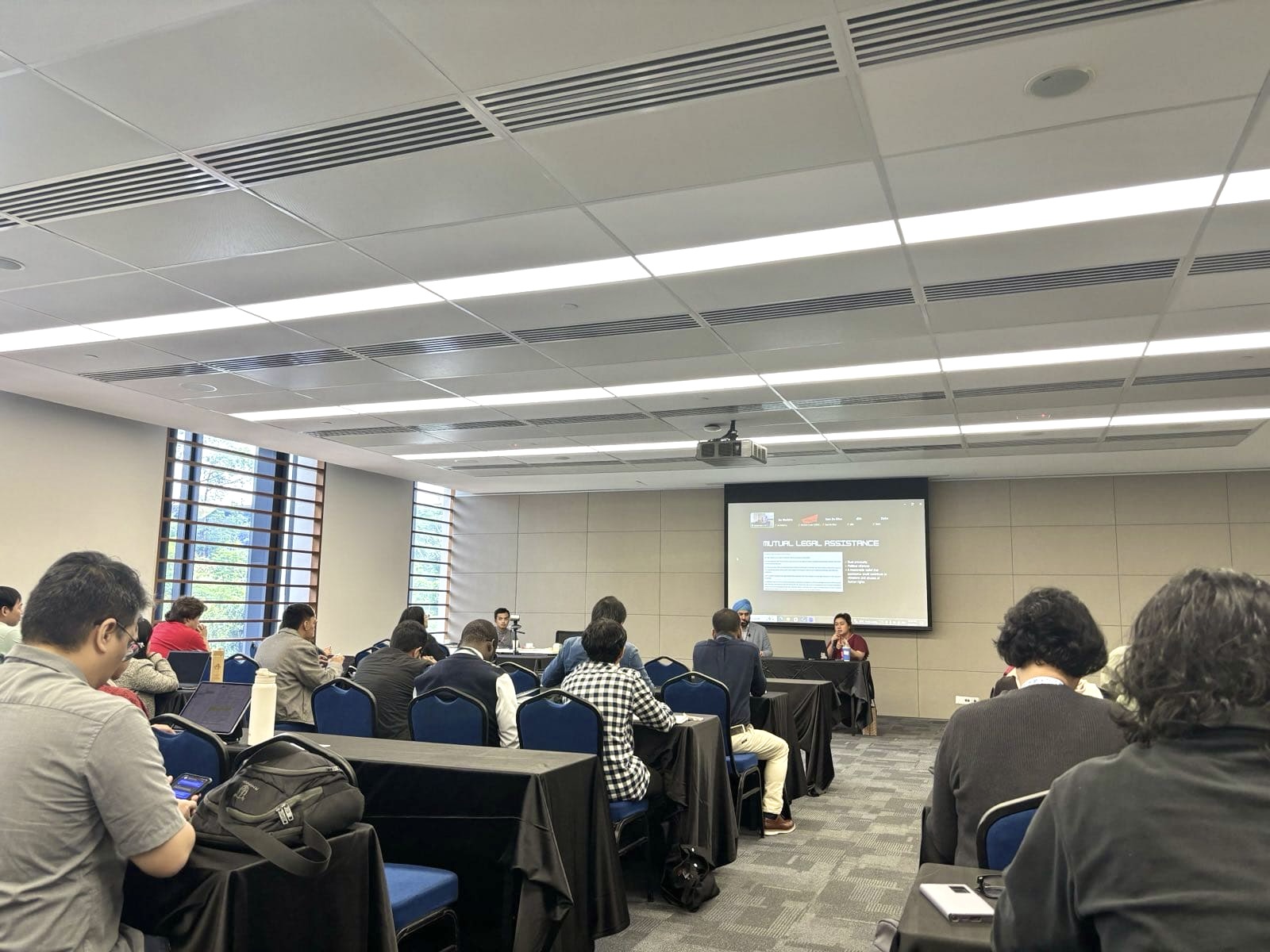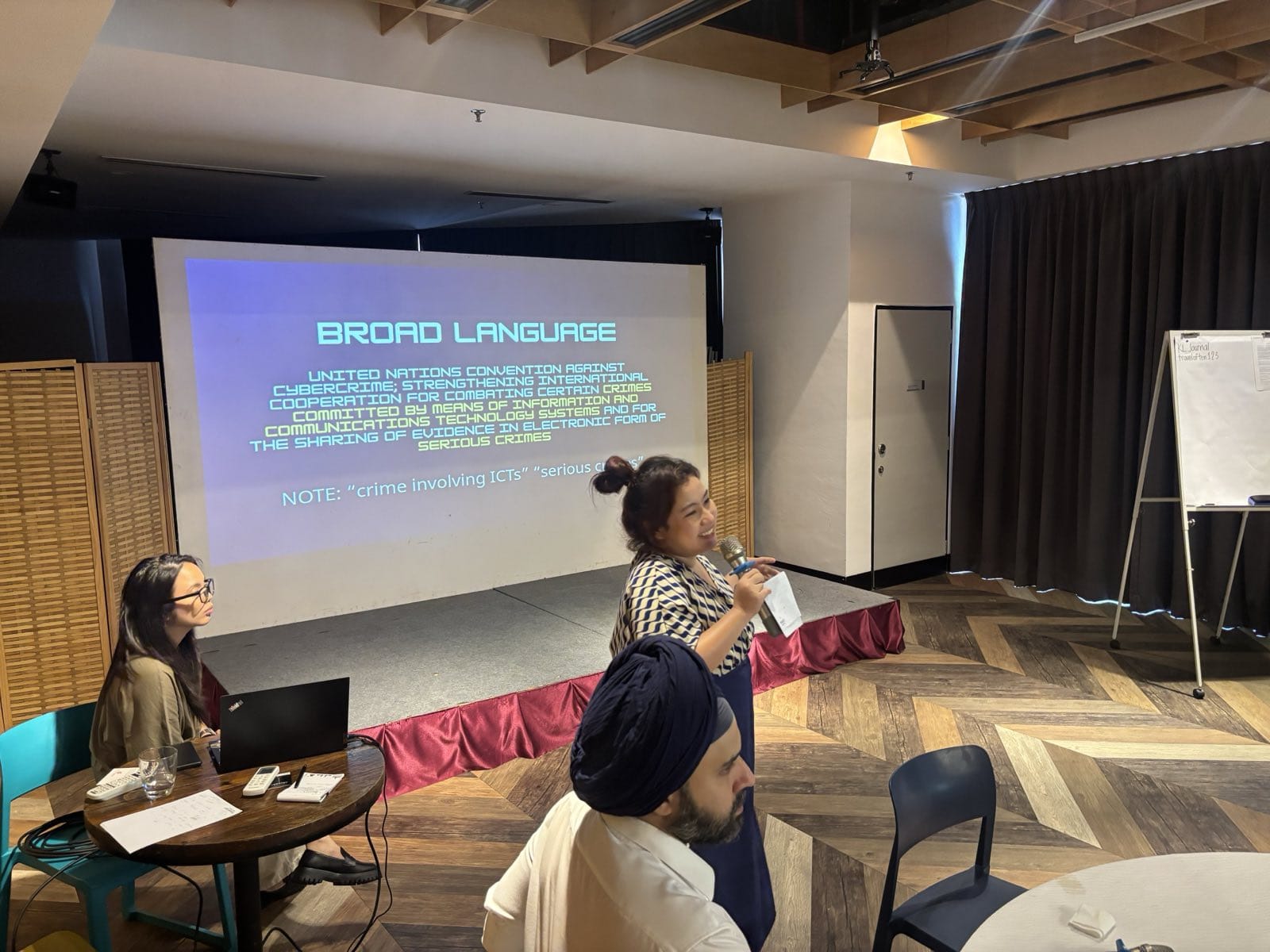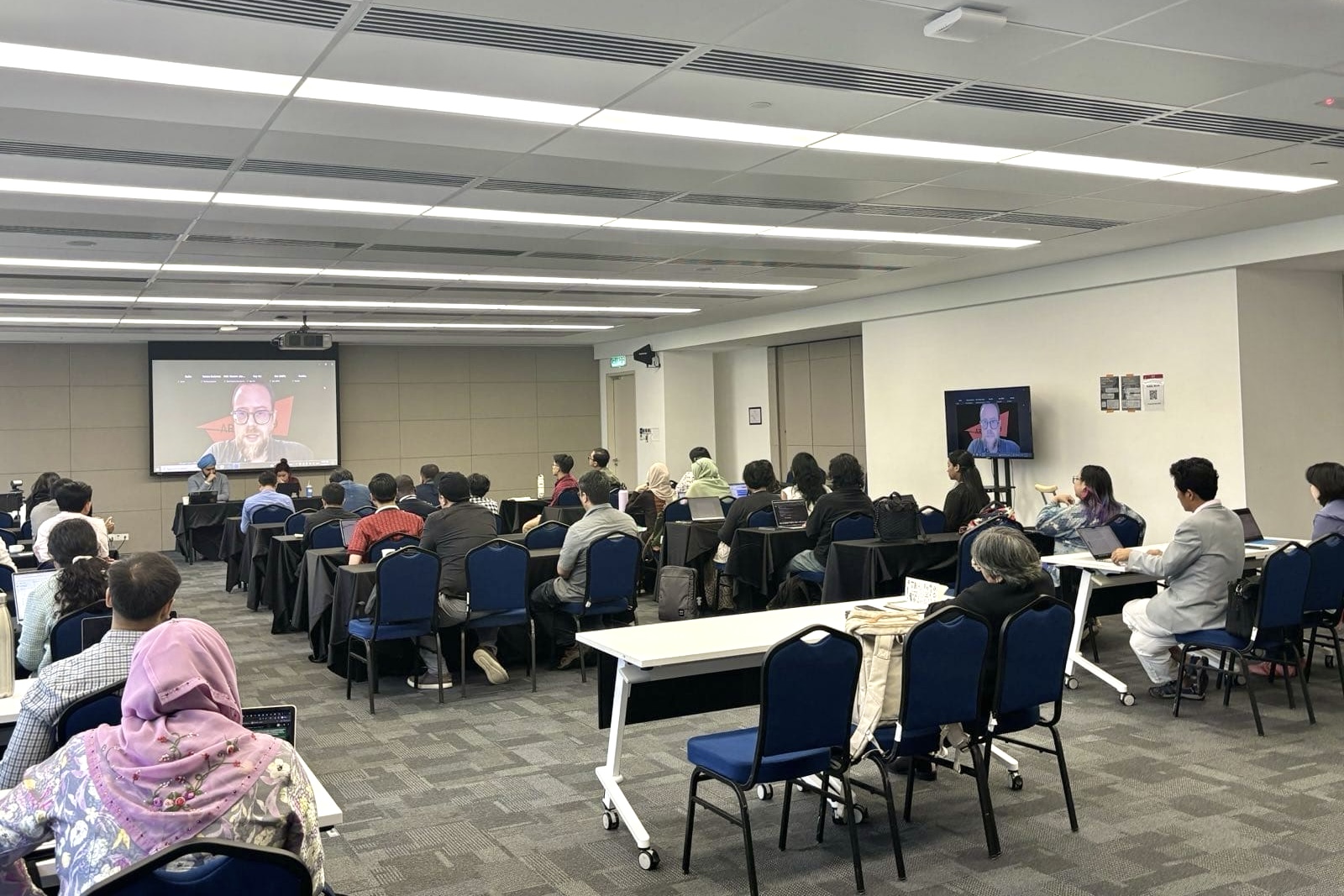On 25 August 2025, the International Commission of Jurists (ICJ), together with Access Now, co-hosted a workshop in Kuala Lumpur, Malaysia, bringing together 30 representatives from NGOs across the Asia-Pacific region, including East, South, and Southeast Asia. The workshop focused on the international legal framework—especially the new UN Cybercrime Convention—governing cybercrime and cybersecurity, identifying existing gaps, and exploring ways forward.
The ICJ also introduced a new initiative it is undertaking together with Danish Institute of Human Rights to elaborate a set of Global Principles on Human Rights in the Digital Space. As part of the Digital Democracy Initiative (DDI), these Principles will provide guidance for protecting human rights in the digital environment and serve as a tool for advocacy and policy reform.
The UN Cybercrime Convention, adopted by the UN General Assembly on 24 December 2024 and expected to be signed by many States in Viet Nam on 25–26 October 2025, contains some positive but also some troubling provisions.
Participants debated the challenges posed by the Convention once it comes into force.
In particular, the Convention could be invoked as a basis for criminalizing legitimate activities, such as online criticism, due to its vague and expansive scope and definitions, as well as its reliance on sometimes pernicious domestic laws. The Convention also leaves human rights safeguards—such as requirements for judicial authorization—discretionary and contingent on domestic law. It provides for broad law enforcement cooperation without detailing the necessary limitations and safeguards required under international human rights law.
Participants also discussed cybersecurity difficulties faced by CSOs in their day-to-day work, as well as practical solutions developed by CSOs to strengthen their security and resilience.
These discussions were complemented by a panel held on 27 August 2025 during the Digital Rights Asia-Pacific Assembly 2025, entitled “From Vienna to Hanoi: How the UN Convention against Cybercrime Will Reshape Asia-Pacific”, which included a presentation by ICJ Senior Legal Adviser Sanhawan Srisod. The panel included exchanges on the potential impact of the Convention, particularly its implications for due process, judicial oversight, and the weakening of existing human rights safeguards.
The United Nations Convention against Cybercrime; Strengthening International Cooperation for Combating Certain Crimes Committed by Means of Information and Communications Technology Systems and for the Sharing of Evidence in Electronic Form of Serious Crimes was elaborated with the stated objective of preventing and combating cybercrime.
A number of NGOs, the UN OHCHR, the UN Special Rapporteur on the promotion and protection of human rights while countering terrorism, and others have called attention to the Convention’s potential negative implications, particularly its impact on human rights. Critics warn that it could facilitate State abuse and transnational repression rather than focusing narrowly on combating cybercrime.
Contact
Sanhawan Srisod, Senior Legal Adviser, Legal and Policy Office, e: sanhawan.srisod@icj.org







